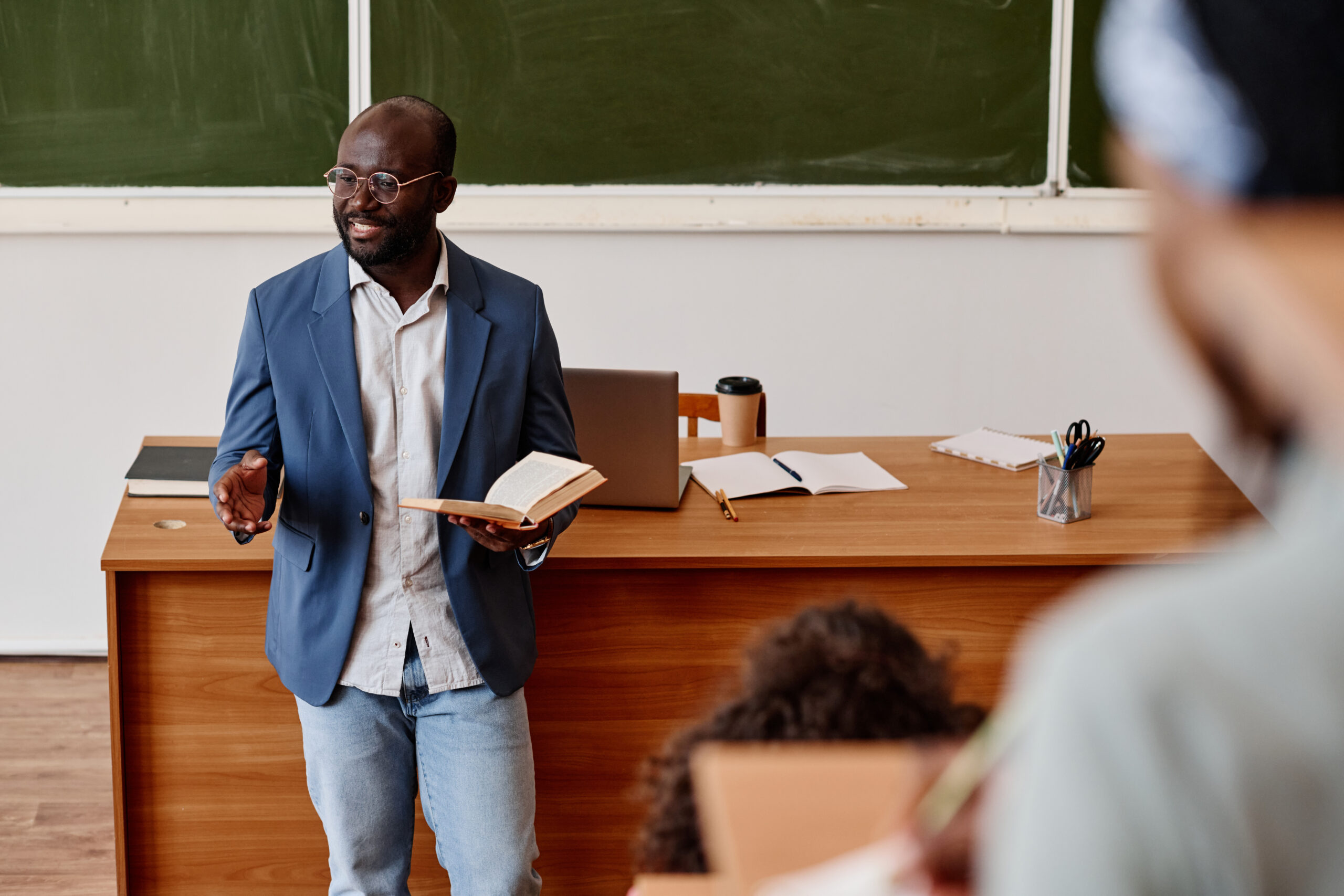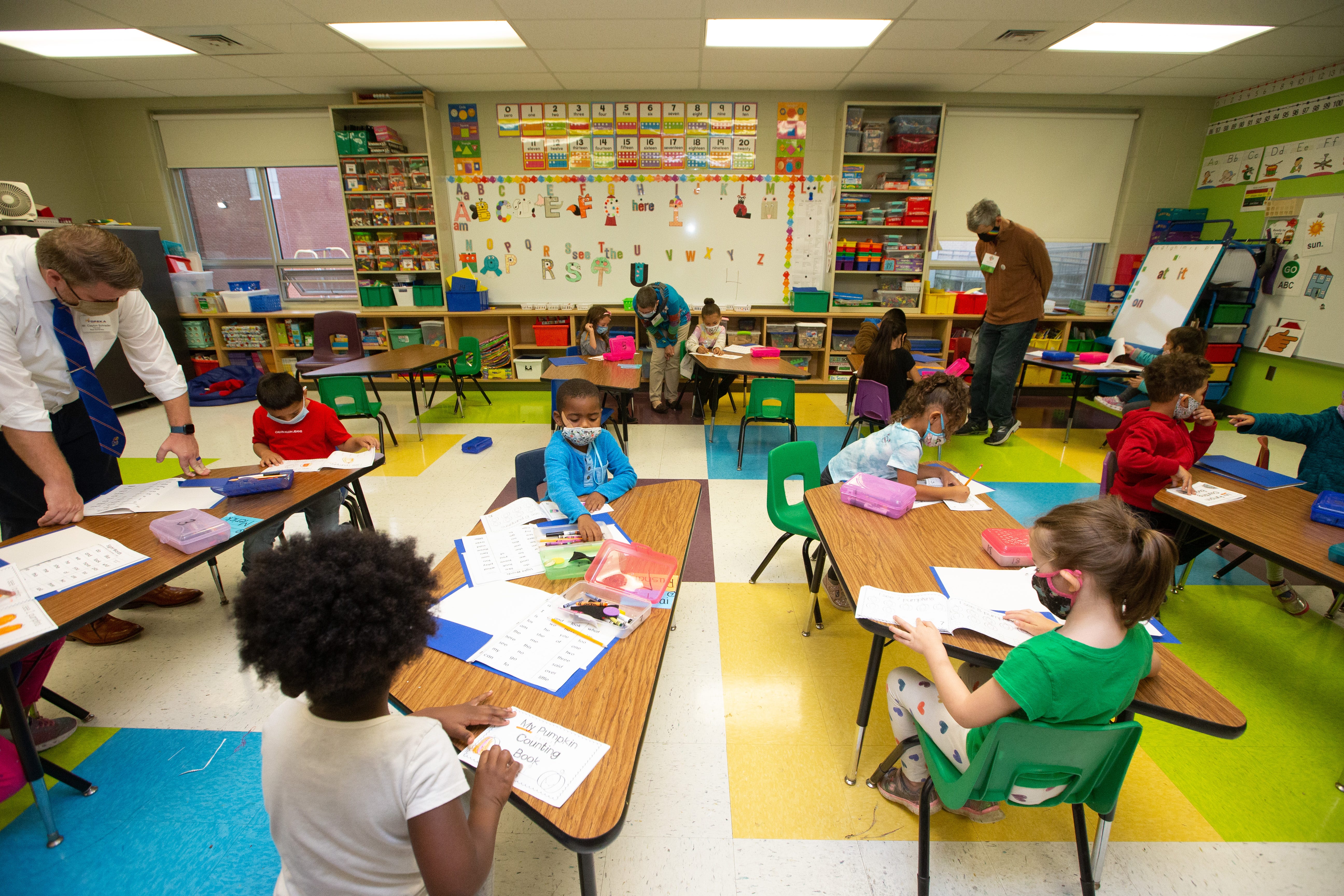Enroll in Primary Science Tuition Singapore for a Strong Science Foundation
Enroll in Primary Science Tuition Singapore for a Strong Science Foundation
Blog Article
Exploring the Different Training Approaches in Main Scientific Research Education And Learning Today
The landscape of key science education and learning is progressing, with various mentor methods gaining prominence in contemporary classrooms. Inquiry-based knowing, hands-on experiments, and the assimilation of technology are redefining how instructors involve young minds. Furthermore, collaborative approaches and separated direction are being used to accommodate the varied needs of pupils, improving both involvement and understanding. As we analyze these approaches, concerns emerge regarding their effectiveness and the effects for future educational techniques. What might these changes in method mean for the future generation of students?
Inquiry-Based Discovering
Inquiry-Based Understanding (IBL) is an instructional strategy that motivates pupils to check out clinical principles through questioning, investigation, and hands-on trial and error. This technique emphasizes the function of students as active individuals in their knowing, advertising vital reasoning and problem-solving abilities. By engaging with real-world questions, students become curious and determined, which boosts their understanding of clinical concepts.
In IBL, instructors function as facilitators, guiding students as they navigate their questions instead of providing details straight. This student-centered strategy enables distinction, suiting various finding out styles and rates. Pupils establish skills in developing hypotheses, designing experiments, and assessing data, which are critical for scientific proficiency.
In addition, IBL promotes cooperation among trainees, encouraging them to share concepts and findings. This cumulative inquiry advertises social skills and a sense of community within the classroom. The process of questions urges resilience, as students learn to accept failure as a tipping rock towards understanding.
Hands-On Experiments
Hands-on experiments are an important part of efficient scientific research education and learning, matching the principles of inquiry-based knowing. These experiments enable pupils to involve directly with clinical principles, promoting a much deeper understanding with experiential knowing. By adjusting materials and observing results, young learners can realize abstract concepts in concrete ways.
Such activities advertise vital thinking and problem-solving skills, as students assume outcomes, conduct experiments, and evaluate outcomes. This process urges them to ask inquiries, improve their understanding, and create a clinical attitude. Hands-on experiments can be customized to diverse discovering styles, making certain that all students have the chance to involve meaningfully with the content.
Moreover, hands-on experiments frequently encourage cooperation among peers, promoting synergy and interaction abilities. Operating in teams allows trainees to share ideas, discuss findings, and pick up from one another, which boosts their overall educational experience.
Integrating hands-on experiments into the primary scientific research educational program not just enhances the learning setting but also cultivates a lifelong interest in scientific research. By actively taking part in their education and learning, pupils are more probable to develop an interest for scientific query that prolongs beyond the classroom.

Technology Combination
Integrating innovation right into main scientific research education has become progressively important in promoting student involvement and enhancing learning results. The usage of electronic devices, such as interactive simulations, digital laboratories, and academic software program, gives pupils with possibilities to discover clinical principles in cutting-edge means. These sources promote a much deeper understanding of complicated topics by allowing learners to visualize and manipulate variables that would certainly be not practical in a typical class setup.
Additionally, innovation combination motivates customized learning experiences. Students can proceed at their very own speed, reviewing challenging concepts via multimedia resources, which deal with various knowing styles. This flexibility not just sustains private growth yet likewise grows a feeling of my website autonomy in learners.
In addition, innovation acts as a bridge to real-world science, linking pupils with present research study and specialist contributions. Accessibility to clinical journals and online databases broadens trainees' point of views on clinical query and fosters essential believing skills.
Collaborative Understanding
Collective understanding plays a crucial role in key science education by cultivating teamwork and interaction abilities amongst trainees. This approach motivates students to collaborate, share understanding, and take part in analytical, which boosts their understanding of clinical concepts. By joining group tasks, pupils learn to express their ideas, pay attention to varied perspectives, and discuss solutions, every one of which are important abilities in both real-world and academic contexts.

Research study suggests that joint discovering can result in boosted motivation and engagement in science subjects, as students discover pleasure in shared experiences (primary science tuition Singapore). In addition, this method prepares pupils for future collective endeavors, equipping them with the abilities required for reliable teamwork in college and professional environments. Inevitably, welcoming collective learning in key scientific research education can dramatically enhance the learning experience and advertise a much deeper understanding of scientific questions
Differentiated Guideline

Set apart direction can manifest in different methods, such as varying the material, processes, or products of learning. Instructors might use tiered projects that offer differing degrees of intricacy, allowing trainees to work at their respective preparedness degrees. In addition, flexible grouping approaches can promote partnership among pupils with different abilities, promoting peer understanding.
Evaluation plays a vital duty in this approach, as it informs instruction and aids teachers recognize each pupil's special demands. Formative analyses, such as tests and monitorings, can lead instructors in adjusting their methods to boost finding out outcomes. primary science tuition Singapore. Inevitably, by executing distinguished guideline in key science education and learning, instructors can cultivate an extra reliable and fair understanding setting, equipping all students to reach their full potential in understanding clinical phenomena
Final Thought
In recap, the varied teaching strategies in main science education and learning, consisting of inquiry-based knowing, hands-on experiments, innovation integration, collaborative learning, and differentiated direction, collectively add to an extra efficient knowing atmosphere. These methods promote essential thinking, analytical abilities, and a much deeper understanding of scientific concepts. By applying these strategies, instructors can develop encouraging and engaging classrooms that resolve the varied requirements of trainees, inevitably cultivating a lifelong passion in science and improving academic success.
Inquiry-Based Discovering (IBL) is a pedagogical strategy that urges pupils to check out clinical concepts with wondering about, examination, and hands-on experimentation.Collaborative learning plays an important duty read the full info here in main science education and learning by fostering synergy and communication abilities amongst pupils.Research suggests that collective learning can lead to enhanced inspiration and interaction in science subjects, as pupils discover satisfaction in common experiences.In fostering a comprehensive learning atmosphere, separated guideline arises as a crucial technique to accommodate the varied needs and abilities of pupils in main scientific research education. Ultimately, by carrying out set apart instruction in key science education, teachers can grow an extra fair and efficient learning setting, equipping all pupils to reach their full possibility in comprehending scientific sensations.
Report this page